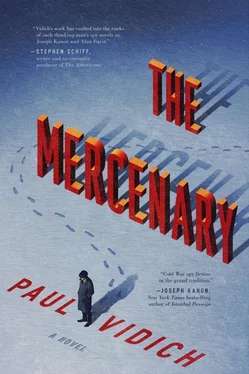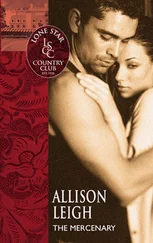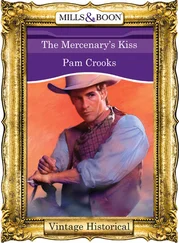Garin emerged from the station’s bathroom, where he had changed his clothes. He wore a gray business suit, narrow tie, black shoes, and wire-rim glasses, which he stopped to clean as he passed two border guards resting their arms on Kalashnikovs, and he confirmed the guards had no interest in him. Petrov left the station carrying his sleeping son on his shoulder, and Garin walked behind, Olga at his side, giving the appearance of a couple.
Garin found the driver and his parked Mercedes where he’d been told they would be. Streets in the medieval town were narrow cobblestone alleys that twisted in unpredictable ways along ancient routes built around old homes. Windows were dark at that hour, doors locked for the night, and the streets were empty.
“You’re late,” the driver said. He looked skeptically at the family. “This is the package? I was told there would be one.”
“Change of plans.”
“What’s your name?”
“Alek,” Garin snapped. “What’s yours?”
“Boris. Okay. Plans change. A patrol drove by two minutes ago. Get in.”
Boris proceeded to remove a section of the back seat of his Mercedes S-Class. Garin made a judgment of the man as he worked, cigarette dangling from his mouth, grunting displeasure. Garin trusted the Agency’s Czech contacts, but he knew that local smugglers were a special breed of men who worked for money and had no political loyalties. At the first sign of danger, they were quick to switch allegiances for their own good. Garin adjusted the nine-millimeter Makarov pistol under his belt.
“Throw that away,” Boris said. “If they find that, forget about getting across the border.” Boris shrugged and added casually, “Or you can keep the gun, but I’m not driving.”
Garin dropped the pistol through a sewer grate. He had stuffed his Soviet Army uniform into the covered wastebasket in the station bathroom, where he knew it would be found, but by that time, they would be across the border.
Boris hustled the family and its two bags into the car. He threw Olga’s duffel bag into the trunk and followed with Petrov’s, putting on a show of urgency. He directed Olga to get in the car. “Up front,” he said. “Next to me.”
“You,” he said to Petrov, “in here.”
Boris had pulled the back seat forward to reveal a specially fabricated compartment that sat between the trunk’s well and the back seat. It wasn’t large, just enough space for a grown man and a child—or whatever the week’s contraband. Petrov slipped in the small space and hunched against one side, his legs drawn to his chest. Aleksey, drowsy from the sedative, was placed in Petrov’s arms, his small legs stretched forward.
“Keep him quiet,” Boris said. “If he talks when the guards look in the trunk, they’ll tear the car apart.” Boris looked at Petrov. He threw a handkerchief. “If he looks like he is going to talk, hold his mouth shut. He’s a nice kid. Don’t make him an orphan.”
The space was cramped but ample, and air circulated through the sides of the back seat. Petrov took a deep breath as Boris pushed the false wall in place and reset the back seat.
Garin sat in the back behind Olga. “I will tap once when we get to customs,” he said through the seat. “Twice when we are across.”
“Names?” Boris asked. He glanced sideways at Olga. “They will ask me at the border. You want me to look stupid? Two passengers who’ve paid me to drive them four hours to Prague and they haven’t introduced themselves?”
Olga gave the name on the Soviet passport and identity card that Technical Services had created, and Garin did the same. Boyfriend and girlfriend. Sports enthusiasts visiting European competitions going on in Prague.
“I know the guard at the first checkpoint. That’s where he will open the trunk and dogs will circle the car. He is Ukrainian, and I provide him tips on the side. Sometimes a girl. So he looks the other way. Just answer his questions and we will be fine.” He looked at Garin in the back seat. “Do you want to listen to music? It might help. Everyone listens to music.”
The Mercedes had begun to move while Boris fiddled with the radio dial, and he confidently sped up as he sought a station, accelerating around corners without headlights.
“If we don’t have music we might seem like we’re smugglers,” Boris said. He played with the dial until he found a Czech station playing ABBA.
“We’re six kilometers from the frontier. At the first checkpoint, we will be asked to get out. They check documents, car registration, ask a few questions, and they’ll look in the luggage. If we are cleared, we go to the second checkpoint. They look at us again, look at the documents, sometimes they put a mirror under the car. I say hello. They may ask you questions, but don’t offer anything. Yes and no. Understand? Then, if all goes well, they wave us through to the Czech side. It is sixty meters across no man’s land. We’re not safe until we are past the Czech border guards.”
Garin settled into the back seat and looked out at the dark streets. Dawn was hours away, and the streets were deserted. Clouds had moved in and dense fog limited visibility, but distant lightning pierced the mist.
* * *
THEY ARRIVED AT the first Soviet checkpoint, a cluster of three cinder-block buildings alongside covered lanes that led to the frontier beyond. Two tall streetlamps cast a dim glow through the fog and lit red-and-white stanchions that blocked the road. Military kiosks stood on either side of the checkpoint. One sign read STOP , and a second, СТОП .
Eighteen-wheel transports were parked at the far end of the largely empty lot, waiting for morning. A bright searchlight atop a tall, steel-girder watchtower swept the empty frontier.
Boris pulled into the rear of the line of waiting passenger cars. Two Volkswagens, a gray Volga sedan, and a silver Mercedes were stopped in front of them. A camouflage-uniformed border guard, his arms resting on a Kalashnikov hanging around his neck, observed a customs agent addressing a driver. He was alert but bored, far into his night shift, but his eyes had the menace of soldiers everywhere. An armored personnel carrier with light machine guns was parked behind the customs kiosk. Another customs agent stepped forward and waved the Volkswagens through the raised barrier.
Boris put his car in gear, moving forward until the guard raised his hand: “Halt.”
Boris whispered to Olga without turning his head, “Keep quiet. I’ll answer his questions.” Then he lowered his window. “Good morning.”
“Papers, please.” The guard looked up after scanning them. “Destination?”
“Prague.”
“Who are these people?”
“From Moscow. I’m driving them to the games.”
The guard lowered his head and illuminated Garin’s face with his flashlight. “Why didn’t you fly?”
“Flights were sold out.”
The guard nodded. “Wait here.”
GEORGE MUELLER STOOD IN THE darkened office on the second floor of the Czechoslovakian Border Control building and looked out the bay window at the strip of empty frontier. Warmth had passed from the earth, and thickening fog obscured the Soviet checkpoint sixty meters away. A watchtower’s searchlight played across no man’s land, slowly sweeping the razor-wire-topped, chain-link fence along the road. Cool early-morning air brought with it wisps of ground-hugging fog and misting rain, and farther off there were lightning flashes from the approaching storm. The search lamp’s beam was leaden gray through the fog.
Mueller raised his 12× binoculars and studied the scene at the Soviet checkpoint. Border guards were in the midst of a shift change. Fresh guards stepping in for the ones ending their duties, and there was a halt in activity as the new men took over.
Читать дальше












